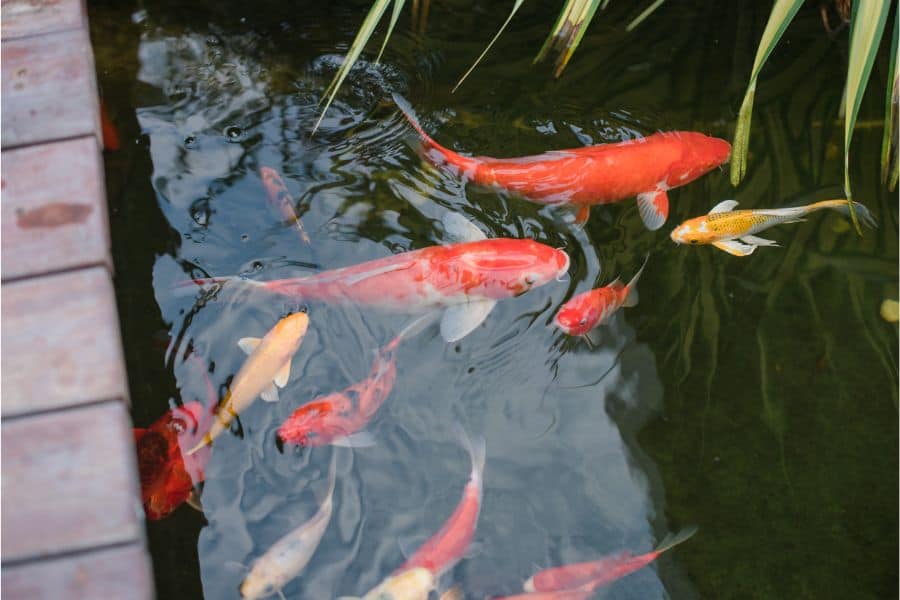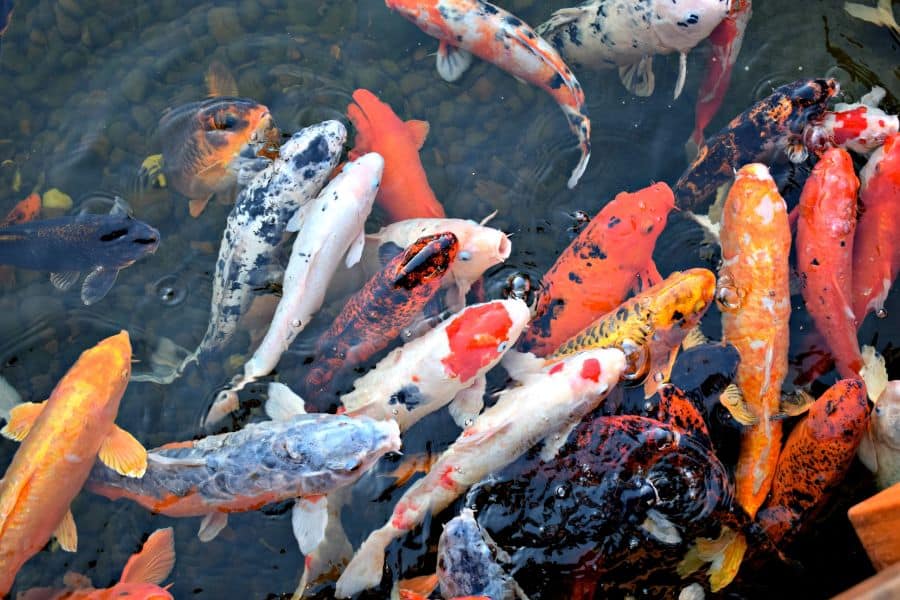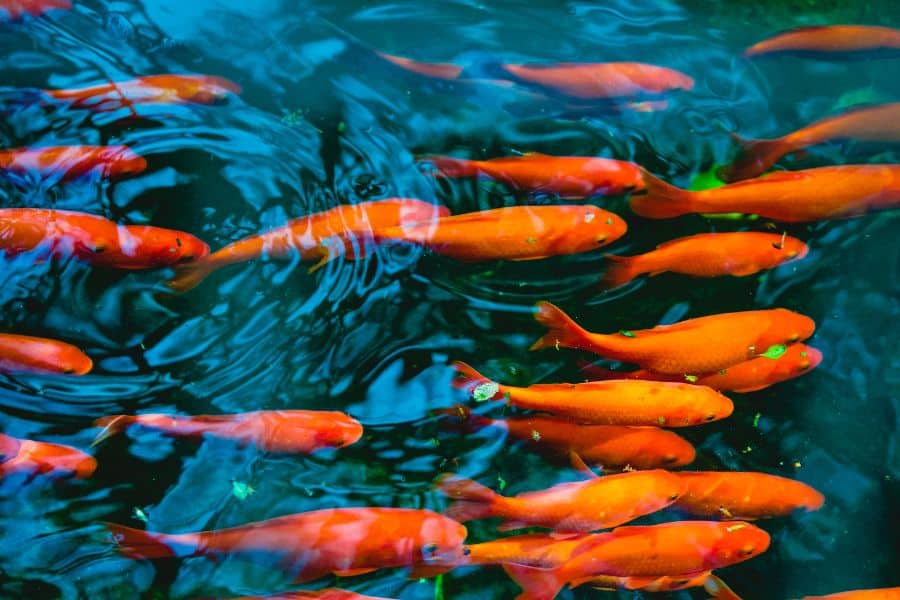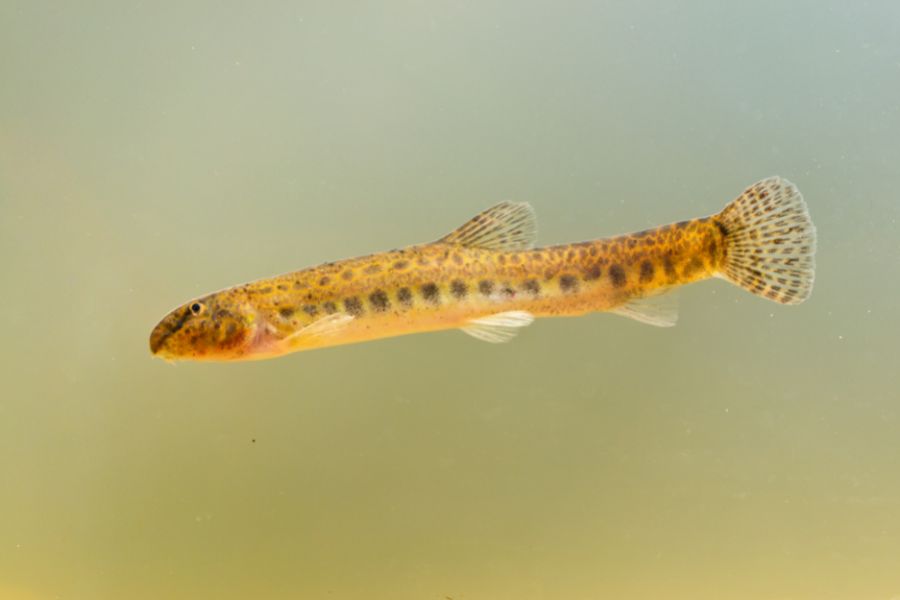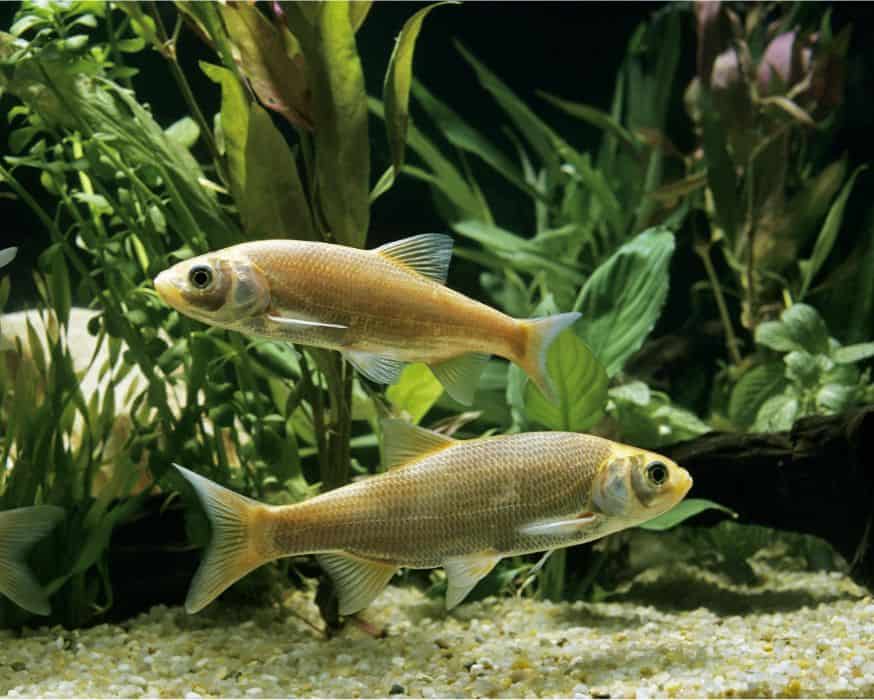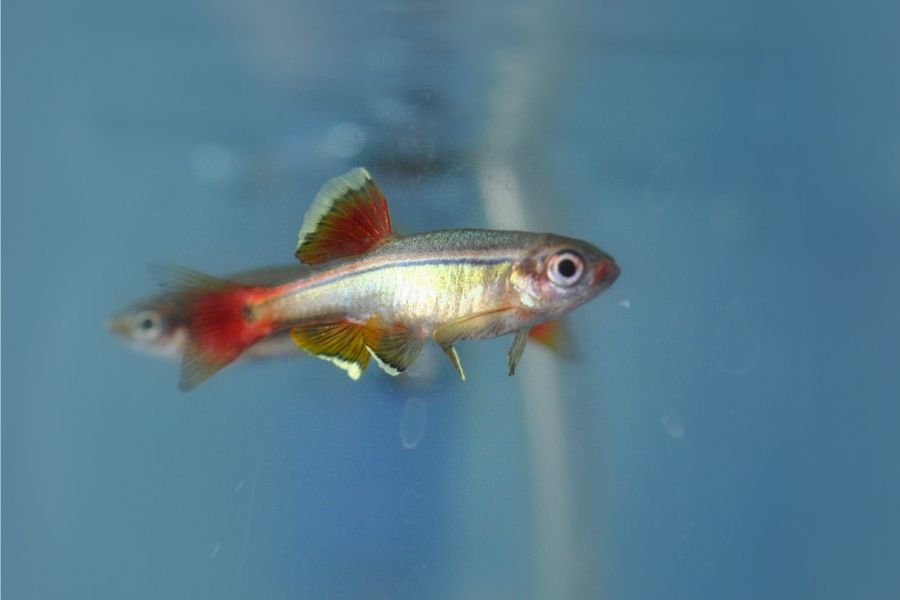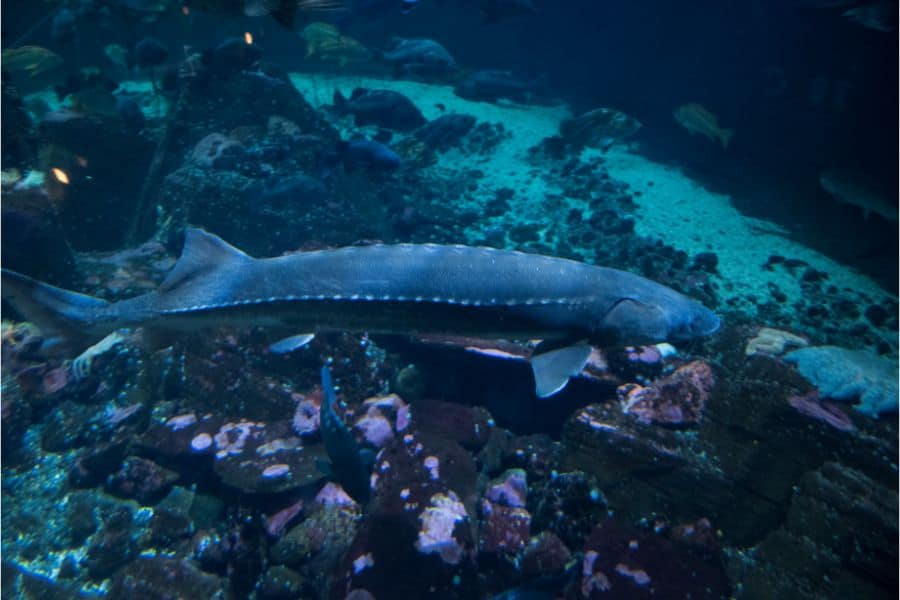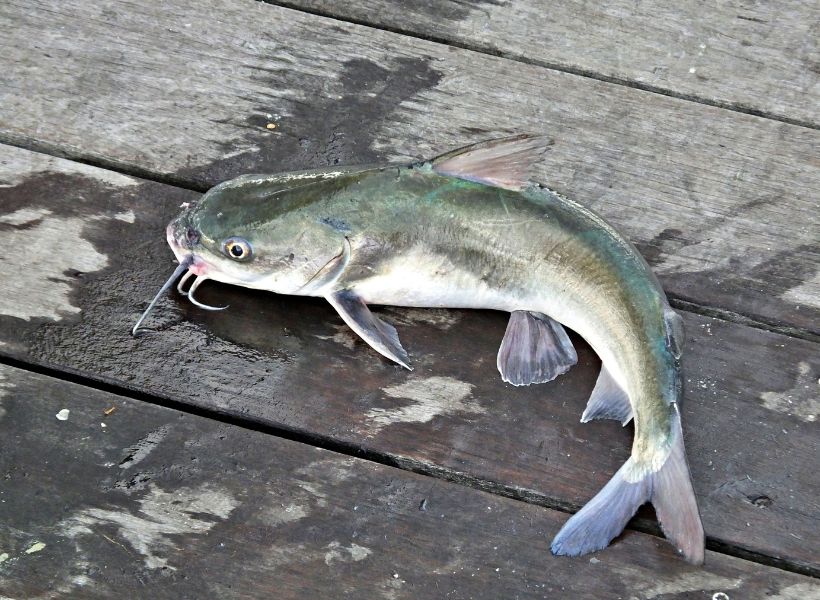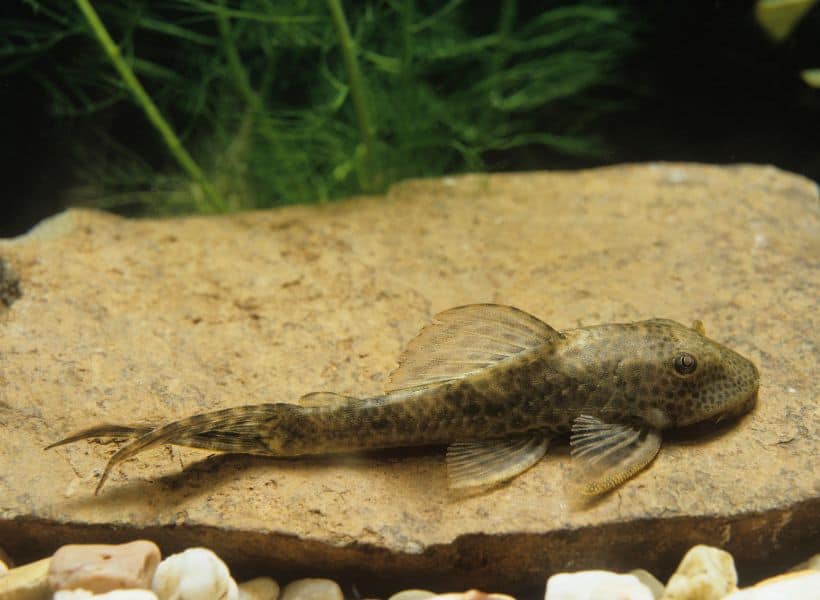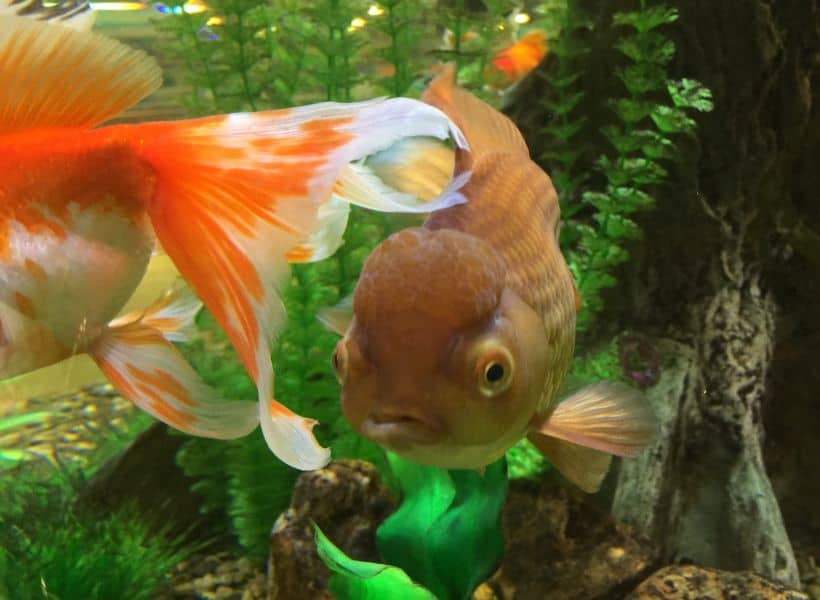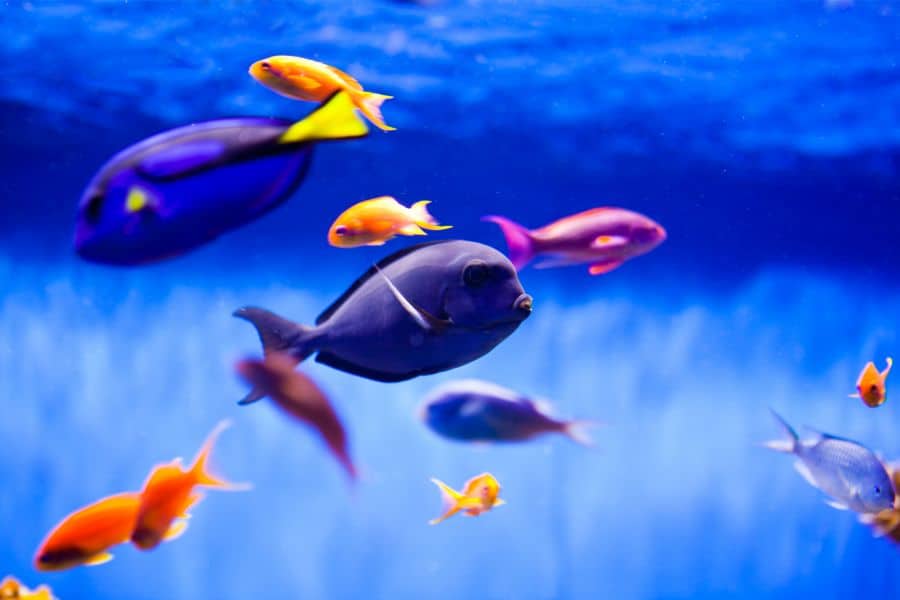Who says that you can only enjoy fishkeeping in the confines of a glass aquarium?
For those who want to think big, outdoor ponds are the way to go – and among every exciting thing that has to be decided, the fish is the most exciting of all. So, let’s ask the question: What fish should you include in your outdoor pond?
In this article, we’ll discuss the best species to house in your tiny slice of outdoor aquatic paradise. We’ll also talk about species you should avoid, which are surprisingly popular options even when they can harm them.
Factors to Consider When Choosing Pond Fish
Before we get into our list, we have to ask: What makes a good pond fish anyway? Why can’t we just take any aquarium fish and throw them into a pond?
In this section, we’ll explore the different factors you should consider before adding any fish species to your backyard pond.
Size
Some people may think that ponds are a great way to keep big fish that they don’t have space in their aquarium for, but that’s actually not the case.
Fish don’t stop growing based on the space they have, regardless if they live in an aquarium or a pond. Instead, overstocking will happen, leading to various problems down the road.
To avoid this, consider how big your pond is before choosing a suitable fish species. Also, always think of the adult size of your chosen fish. For example, goldfish may seem small when they’re young, but they can grow to astronomical proportions as the years pass.
Temperature
Temperature is another big factor when it comes to choosing pond fish, particularly if you live in a cold-weather climate. Unlike indoor aquariums, it can be quite hard to regulate the temperature of an outdoor pond.
This means that the fish species of your choice should be able to handle both the lowest and the highest temperatures in your geographical area.
So, if you live in a cold-weather climate, you shouldn’t pick tropical fish for your outdoor pond unless you’re willing to take them inside every winter season – something that isn’t a good idea from a practical standpoint, too.
Resilience
Conditions-wise, a pond is basically the opposite of an aquarium. With aquariums, you get to control everything, from the parameters to the temperature, even to the lighting schedule.
Out there in your backyard, though, conditions are not always stable. And the bigger your pond is, the less control you have over it.
In order to live in such an environment, pond fish have to be hardy and resilient enough to survive in fluctuating conditions. Otherwise, they’ll fall ill and even spread diseases throughout the pond.
Behavior
Different fish species have different behaviors. It’s important to take this into consideration when choosing fish for your pond, in addition to the other factors we mentioned above.
For instance, white cloud mountain minnows may be small, but they do breed often and fast. They’re sure to overcrowd a small pond quite quickly.
Meanwhile, catfish may be hardy, but they do make a huge mess out of everything, making them unsuitable for some fishkeepers.
10 Best Backyard Pond Fish
With that out of the way, let’s dive right into our list of the best pond fish for your outdoor pond.
1. Koi
If you ask someone to think of an outdoor pond fish, there’s a good chance they’ll automatically think of koi fish.
This colorful and very popular member of the carp family has become synonymous with outdoor pond keeping, and for good reason.
Koi carp are renowned for their dazzling array of colors, intricate patterns, and highly tolerant physiques, making them a complete delight in outdoor ponds.
Aside from their eye-catching aesthetics, their popularity stems from their longevity. Some kids have been documented to live for several decades. The oldest recorded koi, Hanako, has been alive for more than 200 years!
They grow impressively large, too, with the heaviest of the bunch weighing about 90 pounds.
Koi are hardy and adaptable, thriving in a variety of weather conditions. This makes them an excellent choice for outdoor ponds, even in colder climates.
2. Goldfish
Goldfish, with their striking metallic hues and graceful fins, are a beloved choice for outdoor ponds.
They’re mostly popular due to their ease of care and the fact that they come in various eye-catching colors.
If the conditions are right, you can release goldfish into your backyard pond without any worries. All you need is to feed them regularly, and they practically raise themselves – with the benefit of seeing their fantastic, colorful shapes darting everywhere.
Goldfish are well-suited to outdoor environments, as they are cold-water fish. This makes them perfect for ponds that experience fluctuating temperatures, such as in temperate areas that experience harsh winters.
However, the goldfish’s incredibly bright coloration can also make them eye-catching prey for animals living outside, such as raccoons and birds. Prepare your pond accordingly, and you shouldn’t have any problems.
3. Pond Loach / Weather Loach
Weather loaches, also known as pond loach or dojo loach, are dotted eel-like fish known for their playful behavior and adaptability to outdoor ponds.
Their popularity stems from their exciting behavior – which also gives them their name.
Pond loaches are historically known to become agitated when the weather turns, and it’s believed that they can detect slight shifts in the barometric pressure of the atmosphere. In fact, people in the olden days used to keep them in wide containers of water as weather predictors.
Pond loaches are also very curious, active, and entertaining. They need wide spaces to forage and explore. They also like to interact with others of their kind and thrive best in social groups of no less than six individuals.
They also need soft sand or soil substrate as they like grazing at the pond’s bottom. Sharp gravel can harm their sensitive barbels, so it’s a big no-no.
4. Chinese High-Fin Banded Sharks
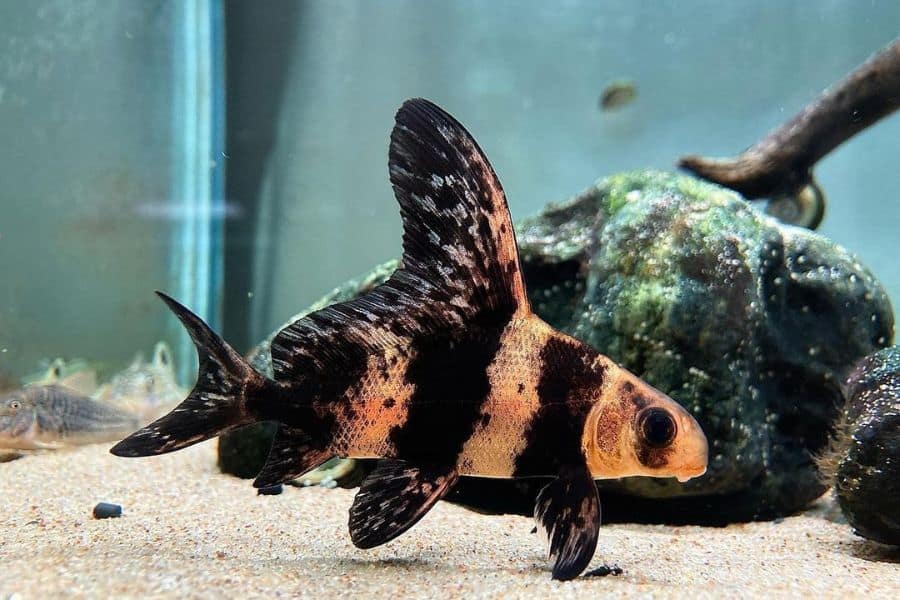
This species of catfish has the distinctive exaggerated high dorsal fin that is commonly associated with sharks in popular media, hence the name.
Their main feature is their appearance. They look quite unique, even for other fishes, and the banded juvenile colors they display are simply a treat for the eyes.
But don’t be fooled – high-find banded sharks don’t stay that cute forever. While they are usually sold as 2-inch juveniles, they can grow up to a massive 4.5 feet in length, although most adults have a max size of 2 feet.
These banded fish originate from the cold waters of China, making them very tolerant of cold water. This means they’re perfect for the outdoor pond setup – just make sure you’ve got plenty of space for them to grow.
5. Golden Tench
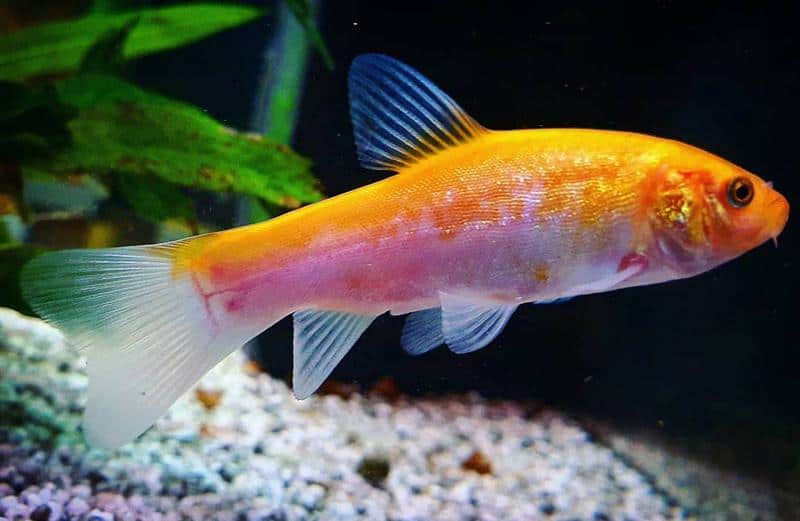
These attractive-looking bottom dwellers are close cousins of the goldfish, although they look very different. They get their name from the golden metallic sheen of their scales that can look particularly eye-catching in the pond.
They’re best known for the myth surrounding their other nickname, Doctor Fish. They’re so named because of the claim that they’ll tend to other pond inhabitants so they don’t get sick, their mucus secreting antibiotics.
And while the antibiotic part is mainly untrue, they take care of other inhabitants by eating detritus, algae, and other organic matter in the pond – keeping it pristinely clean.
They’re very hardy, able to adapt to various water parameters and temperatures, and rarely catch diseases.
Golden tenches can grow to about 20 inches and are best kept in groups of five at the minimum.
6. Orfe
Also commonly known as Ide, this fish is another popular outdoor pond choice because of their adaptability to cold weather and general hardiness.
Orfes look like carp, with defined, solid-colored, fan-like scales that can be gold, silver, or blue, depending on the variety. They also grow up to 2 feet, ideal for a large outdoor pond.
They like highly-oxygenated environments that reach a depth of at least 40 inches. Having a pond this deep is ideal because it allows them to hibernate over the winter.
Orfes are also well known for not messing with the plants in their pond setup, making them great for ponds with beautifully curated greenery.
7. White Cloud Mountain Minnow
Known for their tiny size and translucent bodies, white clouds epitomize understated elegance in outdoor ponds. They might look diminutive, but there’s plenty to love about them.
They got their name from their native home in Guangzhou, China: Baiyun Mountain, also known as White Cloud Mountain.
But if you put them in your outdoor pond, you’ll find that name appropriate. They readily breed, and you’ll find a white cloud of glistening minnows in your outdoor pond.
More than the enchanting schools they form, though, they’re also famous for their ease of care.
They’re cold water fishes, so they can tolerate the winter months. Plus, they are also very hardy fish for small ponds and will readily adapt to various water parameters. They’re the perfect miniature pond inhabitants.
8. Mosquito Fish
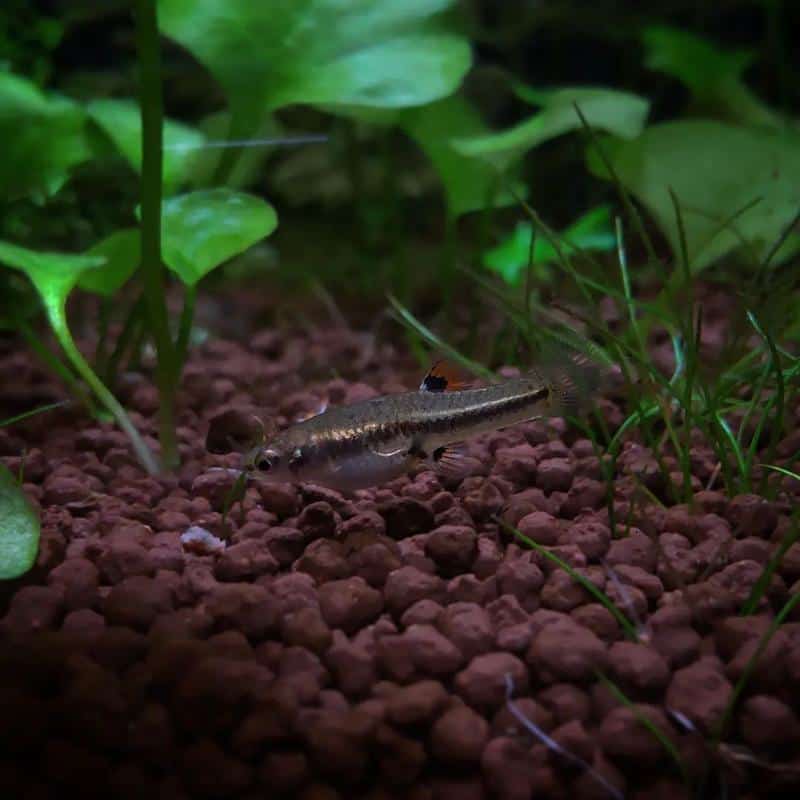
Mosquito fish may not be the flashiest inhabitants of your outdoor pond, but they are heroes when it comes to keeping pesky insects at bay.
These small pond fish play a crucial role in controlling the mosquito population, making them incredibly popular as starter fish among pond enthusiasts.
Their voracious appetite for mosquito larvae and other aquatic insects is their standout feature. They’re so efficient that governments worldwide have used them to control mosquito populations in several countries such as India and Australia.
But more than that, they’re also well regarded for their adaptability, low maintenance requirements, and ease of breeding.
9. Murray River Rainbowfish
The Murray River rainbowfish, also known as the Australian rainbowfish, is a coldwater cichlid native to Australia.
Murray River rainbowfish are a captivating addition to outdoor ponds, thanks to their vibrant, iridescent colors and graceful appearance. Like other rainbowfish cichlids, their main distinguishing characteristic is the multi-colored sheen on their scales.
In the proper lighting, they shine like a rainbow.
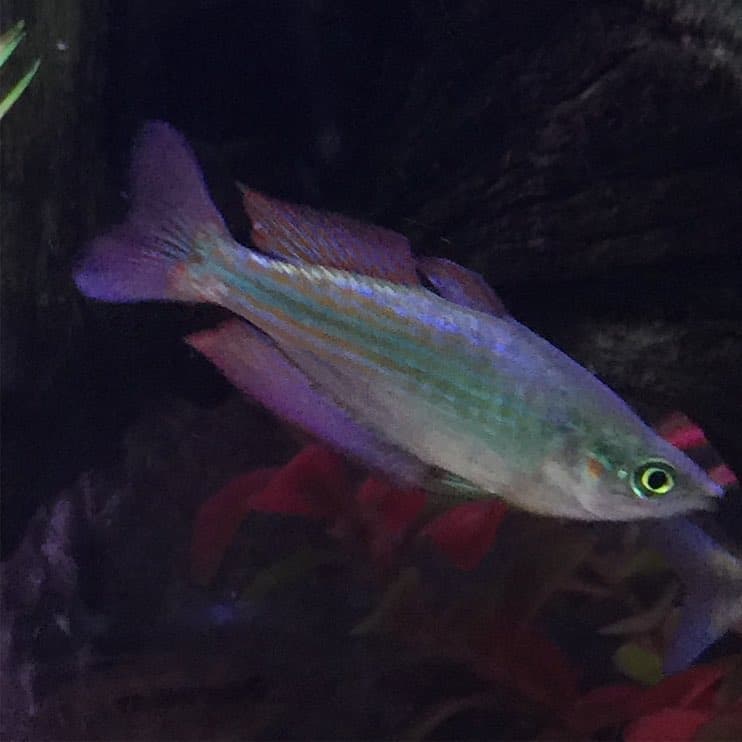
This rainbowfish is also very tolerant of cold weather and can live outdoors without any problems. Murray River rainbowfish thrive in outdoor ponds with ample vegetation, as they appreciate hiding spots and enjoy a varied diet.
10. Golden Rudd
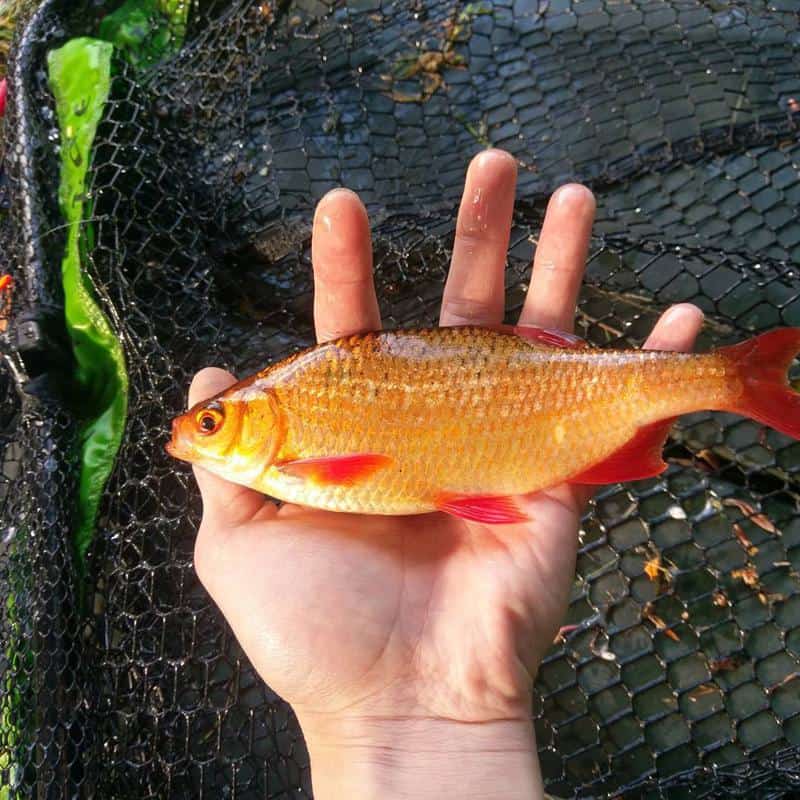
The golden rudd is another great pondfish known for its stunning coloration.
They have shimmering, metallic scales that glisten in the sunlight, making them visual spectacles in your pond when the sunlight hits just right. This fish also has vivid red or orange fins that look great up close.
Typical of the pond fish in this list, the golden rudd is very hardy and adaptable and can thrive even during cold winter.
They can grow up to 1 foot in length and are pretty long-lived at 10 to 15 years.
5 Popular Pond Fish to Avoid
There are a lot of pond fish lists circulating on the internet, and we’ve noticed in particular that these species are very commonly included.
Size isn’t all that matters if you’re choosing fish that live in ponds, and just because a fish can grow quite big doesn’t immediately make it suitable.
Let’s look at these five popular fish that don’t actually belong in a pond.
1. Sturgeon
While it’s hypothetically possible to raise sturgeon in a pond, it’s not your easy backyard pond fish.
The sturgeon is an ancient species of fish that has been around this planet for 200 million years, with many different species. The smallest grows to a maximum length of about 5 feet and can weigh at least 22 pounds.
Their size and weight alone should tell you the difficulty of putting them in a pond, but there’s more.
The pond has to be wide and deep enough to accommodate at least two sturgeons as they’re very social and must not have any corners or plants as they can’t swim backward and can die if stuck in a corner or tangled in vegetation.
They need incredibly pristine and aerated water, lots of water flow, and sand and gravel at the bottom.
That doesn’t include feeding, maintenance, diseases, etc. While the sturgeon is a tough fish that’s been around for millions of years, it just means that they’re very well adapted to life in the wild and will likely only suffer if put in any pond.
2. Catfish
Catfish might make for good pond fish at first thought. After all, they’re hardy, can survive the cold, and grow large.
But they’re also voracious and messy eaters, so any other fish or plants you plan to put in the pond will go down their gullet. They love to hide amidst the muck, so they’ll constantly try to foul up the water, and they’re very comfortable living in their own waste.
Ultimately, while you can keep catfish in a pond, it won’t be pretty, and we don’t recommend it.
3. Plecos
If you want an algae eater in your outdoor pond, you might turn to the pleco, a sizable and voracious algae eater for aquariums.
Only it wouldn’t work – at least not in temperate areas. Why? Because Plecostomous are tropical fish species, they won’t be able to adapt to the extreme cold of temperate winters.
Unless you plan to heat a small outdoor pond all winter long, they won’t survive.
4. Fancy Goldfish
Many lists include fancy goldfish such as celestials in their list of pond fish, but contrary to popular belief, putting them in a pond is not just bad but even cruel.
Fancy goldfish have physical deformities that would make life in a pond very much of a struggle. They will be slow swimmers, so traversing the length of the pond for food will be a painful experience. They’ll also be outcompeted for food if you have other, less deformed fish.
They’ll also be vulnerable to predation by other fish or animals outside the pond.
5. Tropical Fish
If you’re from a temperate country, rule out any poor tiny tropical fish. This includes guppies, mollies, and bettas.
Not only do they need an especially heated environment to survive (like they do in aquariums), but their bright colors make them incredibly alluring to the multitude of predators that exist in abundance around the continental US.
They can thrive outside in their regular, tropical climates, but putting them in ponds would be a death sentence if you’re from a temperate location.
Final Thoughts
Ponds are a great way to widen the scope of your fishkeeping hobby to include the great outdoors. Plus, you even get to decorate the direct exterior environment of your house!
Before you can get a successful pond, you need to read a crucial element: your fish choices. It can be quite challenging to plan this aspect, as you need to consider various factors to ensure that your pond thrives.
This article tackled the best pond fish you can get for your outdoor pond! With this, you’re ready to make your choices and stock the pond of your dreams.
